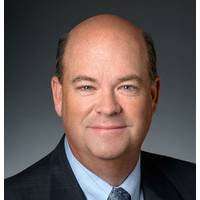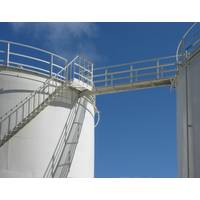OPEC data show that Russian oil production increased in November.
OPEC data on Thursday showed that Russian oil production increased in November by 10,000 barrels per day, up from October. This was after the OPEC+ group agreed to a moderate increase in output quotas. OPEC+ (which includes the Organization of the Petroleum Exporting Countries, Russia, and some smaller producers) has increased their?oil production targets by over 2.7 million bpd in this?year. This is equivalent to around 2.5% of the global demand. After years of reductions, the shift in policy is intended to gain market share from rivals like U.S. shale oil producers.
Occidental Petroleum predicts flat production and lower spending in 2026
Occidental Petroleum, an oil and gas company, said Tuesday that it expects a flat growth in production and lower spending than the current year levels by 2026 as crude prices fall. The U.S. shale oil producers are coping with a global oil crisis, as prices remain in the $60 per barrel range. This is due to OPEC+ production increases and a slowing of global demand. Benchmark Brent crude prices have fallen by about 12.7% this year. Sunil Mathew, Chief Financial officer of Occidental, said in a conference call that the company expects production to remain flat or increase by 2% between 2026 and 2027, mainly due to unconventional Permian activities.
Diamondback claims it is the 'consolidator' of choice in Permian as oil outlooks dim.
Diamondback Energy, a shale driller, said Tuesday that it should be the "consolidator" of choice in the Permian Basin as shale activities slow and the company concentrates on shareholder returns after its $26 billion merger. Diamondback shares dropped 3.6% in the morning to $142.67 after it reported a second-quarter loss below analyst's estimates. The company was hit by a 20% drop in Brent crude oil prices year-on-year amid weak global economic growth, OPEC+ production increases, and geopolitical tensions. Midland, Texas based company, said that it is still focused on reducing its debt and share count by 2025.
OPEC+ targets US shale again with output increases

Saudi Arabia and Russia, the group's leaders, are also pushing a secondary objective behind OPEC+’s plan to increase oil production and punish overproducing allies: taking on U.S. shale to win back market shares from the United States. OPEC’s last price war against U.S. producers ten years ago failed, as technological and drilling breakthroughs allowed U.S. shale firms to cut costs, lower prices, and take market share away from the 12-member groups in the years that followed. The U.S. is more susceptible to price wars now. In the last three years, costs have risen for U.S. shale oil producers.
Baker Hughes reports that US drillers added oil and gas rigs in the US for a second consecutive week.

Baker Hughes, a leading energy services company, said that U.S. firms added oil and gas rigs this week for the second consecutive week for the first since February. The number of oil and gas drilling rigs, a good indicator of future production, increased by two in the week ending April 25. Baker Hughes reported that despite this week's increase in rigs, the total count is still 26 or 4% lower than this time last year. Baker Hughes reported that oil rigs grew by two this week to 483 while gas rigs grew by one to 98. Drillers reduced the number of operating rigs by five in April. This is the second consecutive month that the total has decreased.
Occidental Petroleum announces higher oil and gas prices in Q1
Occidental Petroleum, a U.S. shale company, said that the prices received by the firm for its oil and gas production in the first quarter of this year were higher than the previous three months. Benchmark Brent crude averaged $74.98 per barrel in the first quarter of 2018, up 1.3% compared to the previous quarter. Meanwhile, U.S. Natural Gas prices increased 30% due to a higher demand because of a cold winter. Exxon Mobil, the industry leader, also said that higher oil and gasoline prices as well as stronger refining margins will help boost its earnings by approximately $900 million.
Sechin, Rosneft CEO, says that OPEC+ cuts in output made the US the top energy exporter.
Igor Sechin, head of Russia's biggest oil producer Rosneft, said that the OPEC+'s decision to reduce oil production in 2016 and 2020 has helped the U.S. shale sector and made it a major global energy exporter. Sechin said, at a forum held in the United Arab Emirates that Russia and its partners had made the most significant contributions to stabilising the global energy markets in the last 10 years. Sechin, a long-time ally of Russian president Vladimir Putin, has expressed scepticism in the past about Russia's collaboration with OPEC. He said that the United States benefited the most from the 2016 deal.
Kemp: Oil traders focus on economy, not dwindling stock.
The oil prices have fallen in recent weeks, as traders focus their attention on a potential slowdown of the major economies. At the end of the month of June, the Organization for Economic Cooperation and Development's (OECD) advanced economies had 2,761,000,000 barrels of crude and refined product in their commercial stocks. The stocks were 120 million barrels below the seasonal average of the past ten years (-4%, or -7.71 standard deviations), and the deficit was now 74 million barrels higher than the previous end-of-March (-3%, or -4.47 standard deviations). According to the Short-Term Energy Outlook, prepared by the U.S.
Kemp: Oil traders focus on the economy, not dwindling stock

The oil prices fell in recent weeks, as traders looked past the depletion of global inventories and focused on a future threat that could be posed by the possible slowdown of major economies.At the end of the month of June, the Organization for Economic Cooperation and Development's (OECD) advanced economies had 2,761,000,000 barrels of commercial crude and refined product stocks.The stocks were 120,000,000 barrels below the seasonal average of the past ten years (-4%, or -7.71 standard deviations), and the deficit was now a whopping 74…
ConocoPhillips CEO Says Surprised by Quick Rebound in Oil Prices

ConocoPhillips Chief Executive Officer Ryan Lance on Wednesday expressed surprise at the quick rebound in U.S. oil prices that slipped into the negative territory in April and said he expects prices to remain volatile in the near term.Oil is now trading at near $40 per barrel, almost double of $20 it averaged in April, the same month prices had briefly slumped to minus $38 per barrel due to low demand as countries halted travel to curb the spread of the new coronavirus, while top producers agreed to pump full bore."We were surprised it came back this strong this quickly…
Saudi Aramco Launches Largest Shale Gas Development Outside US

Saudi Aramco is launching the biggest shale gas development outside of the United States to boost domestic gas supply and end the burning of oil at its power generation plants, Chief Executive Officer Amin Nasser told Reuters on Monday.The world's top crude oil exporter has for years battled for market share with rapidly expanding shale oil producers in the United States, which in just a decade have developed capacity to pump millions of barrels per day of oil from rock formations that were previously too costly to tap.Saudi Arabia fought a price war aimed at putting the U.S. shale industry out of business just six years ago, which ultimately failed.
US Shale is Not Doomed, Says Rystad Energy
Though bankruptcies among U.S. onshore exploration and production (E&P) companies are on the increase during these days, Rystad Energy doesn’t believe this indicates doom for the shale industry.“In a nutshell, we do not believe the recent bankruptcies that have beset a number of shale players are indicative of an industry-wide epidemic,” says Alisa Lukash, a senior analyst on Rystad Energy’s North American Shale team.During the next seven years, the top 40 US shale oil producers are expected to spend about $100 billion on debt instalments and interest unless further debt refinancing is applied.These drillers…
Only 10% of Shale Firms Reports Positive Cash Flow
Only four, out of the financial performance of 40 dedicated US shale oil firms under study, reported a positive cash flow balance in the first quarter of 2019, bringing down the share of companies with a positive cash flow balance from the recent norm of around 20% to just 10%.Nine in ten US shale oil companies are burning cash, according to Rystad Energy.Total cash flow from operating activities (CFO) fell from $14 billion in the fourth quarter of 2018 to $9.9 billion in the first quarter of 2019.“That is the lowest CFO we have seen since the fourth quarter of 2017…
Oil Falls as U.S. Adds New Rigs, China Weakness

Oil fell nearly 2 percent on Monday after U.S. companies added rigs for the first time this year, a signal that crude output may rise further, but the price is still on course for its strongest January gain for 14 years.Further weighing on oil markets, the trade dispute between the United States and China looks unlikely to end anytime soon and its impact on the Chinese economy is increasing.Brent crude oil futures were down $1.05 at $60.59 a barrel by 1300 GMT, while U.S. futures were down $1.02 at $52.67 a barrel.U.S. crude production <C-OUT-T-EIA>…
Crude Oil Inventory Update

Crude inventory build has reared its head again. And fears of an oil glut returning have sent oil prices south.According to the International Energy Agency (IEA), OECD oil stocks increased by 58.1 million barrels in Q3 2018, the largest gain since 2015. The agency in November said OECD oil holdings are likely to exceed the five-year average when October data are finalized.Looking forward, the IEA expects an implied stock build of 2 mb/d in the first half of 2019 – assuming OPEC producers continue at their current production pace and global demand grows at a rate of 1.4 mb/d.Weekly survey results by the U.S.
Shale Producers Urge FERC to Deny Pipeline's Rate Request
Top shale oil producers asked a U.S. regulator this week to reject White Cliffs pipeline's application to charge market-based rates for shipments from Platteville, Colorado, to the storage hub at Cushing, Oklahoma. U.S. shale producers ConocoPhillips Co, Kerr McGee Oil & Gas Onshore LP, a unit of Anadarko Petroleum Corp, Noble Energy Inc along with Bill Barrett Corp told regulators White Cliffs will likely raise fees if given the authority to charge market-based rates. Kerr McGee and Noble are shippers of crude oil on the White Cliffs system.
Shell: U.S. Shale's "rational behaviour" Helping Prices
U.S. shale oil producers have stopped chasing record production numbers and have become more focused on profitability, meaning this "rational behaviour" is helping to prop up oil prices, Royal Dutch/Shell's Chief Executive Ben van Beurden said on Thursday. The company's Chief Financial Officer Jessica Uhl told the same news conference Shell could easily double production from shale assets in the United States, Canada and Argentina in the next 5-10 years from the current 275,000 barrels per day. Reporting by Ron Bousso and Dmitry Zhdannikov
US Shale Eases Into Detente with OPEC as Supply Cut Extended
U.S. producers applauded Thursday's decision by the Organization of the Petroleum Exporting Countries (OPEC) and non-OPEC producers led by Russia to extend output cuts until the end of 2018. Texas and North Dakota - the two largest U.S. shale-producing states - described it as a boon for their producers. Their appreciation was in contrast to a more combative style in recent years, when shale states seemed to relish openly bashing the group. "Now that it seems prices are looking to stabilise with this OPEC deal around $60 (per barrel)…
Russian Oil Industry Pipe Maker TMK Prepares for U.S. Spin-off

TMK, Russia's largest maker of steel pipes for the oil and gas industry, is preparing its U.S. subsidiary IPSCO Tubulars for an initial public offering (IPO) of shares. The announcement comes amid concerns among some Russian officials about a potential expansion of U.S. sanctions against Moscow and as Russia itself has pledged to cut its oil output by 300,000 barrels per day as a part of the global deal. OPEC and non-OPEC oil producers look poised to agree at a meeting on Thursday to extend output cuts until the end of 2018, four OPEC sources said as the group seeks to clear a global glut of crude and avoid another price crash.
Oil Steadies Ahead of OPEC Meeting
U.S. output may rise more than rig count suggests - Westwood. Oil prices were only slightly firmer on Tuesday as traders looked ahead to a meeting next week at which major crude exporters are expected to extend production cuts but the prospect of rising U.S. output capped gains. Brent crude oil was up 12 cents at $62.34 a barrel at 1145 GMT. U.S. light crude was at $56.56, up 14 cents. Analysts said Brent was expected to fluctuate in a narrow range, between $61 and $63, as the market awaited the outcome of the Organization of the Petroleum Exporting Countries' meeting on Nov. 30.